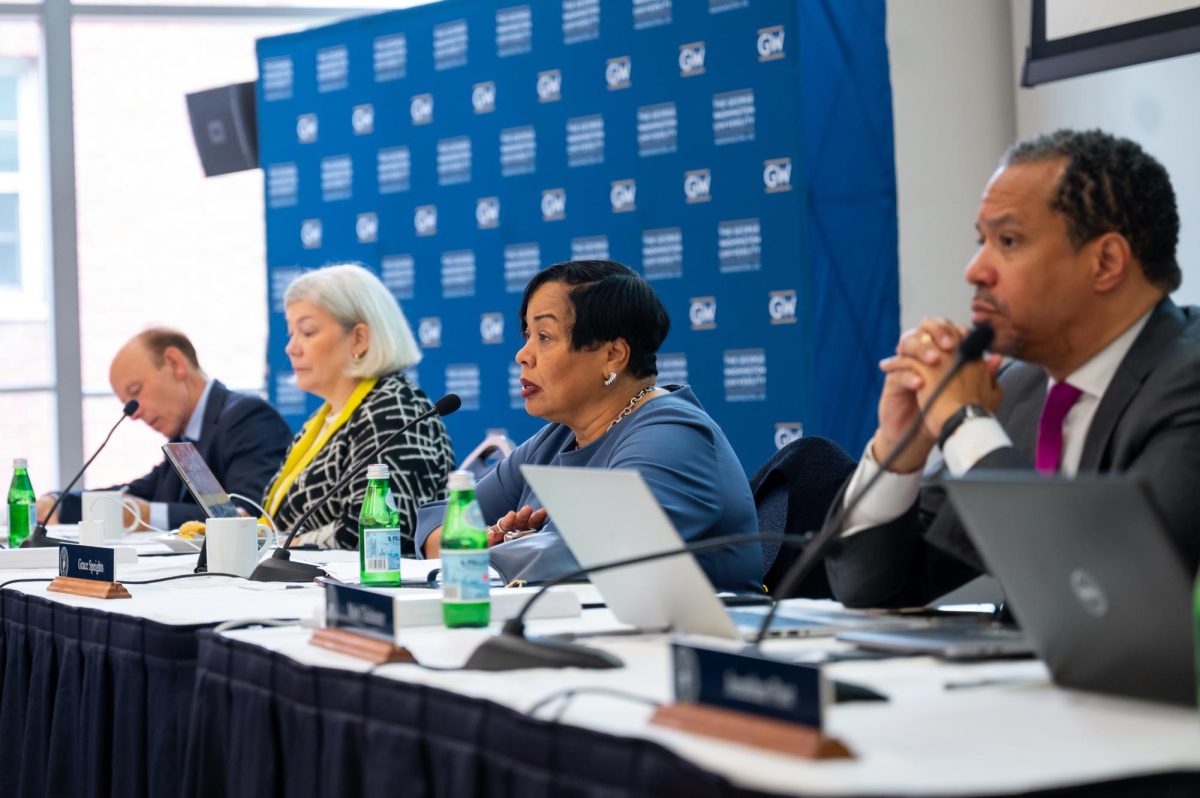GW joined 36 other private colleges and universities in filing an amicus brief supporting the University of Michigan in the Supreme Court affirmative action case.
“The court should reaffirm … that diversity, including racial diversity, serves compelling interests in excellence, leadership and experimentation in higher education,” the brief argues, adding, “race may be considered as one of many factors in a narrowly-tailored effort to achieve meaningful diversity in higher education.”
The case is putting affirmative action at the center of a nationwide debate over the future of the practice, which gives some measure of preferential treatment to minorities in an effort to stimulate diversity. The current lawsuit, brought in 1997 by white students denied admission to Michigan, alleges the use of affirmative action is unfair racial discrimination.
The brief argues, “the court should preserve academic freedom and the spirit of experimentation vital to higher education by preserving the ability of colleges and universities to consider race as one of many factors when selecting students for admission.”
GW officials stress that affirmative action increases diversity, which positively contributes to campus life.
“Most universities in the United States don’t practice affirmative action because they admit everyone who applies, but more selective schools, such as GW, get many more applicants than they can accept,” said Paul Butler, a GW Law School professor who specializes in affirmative action and civil rights law. “Both the undergraduate schools and the Law School at GW have become more diverse. At the same time, ,GW is rising in rankings – I don’t think that is a coincidence.”
“If the Supreme Court rules it unconstitutional to consider race, that will mean the number of African Americans, Hispanics and certain Asian American groups will dramatically decline,” Butler said. “If Michigan loses, GW, Michigan, Yale, Harvard and every elite university will look different in four years.”
Kathryn Napper, director of admissions for GW, said it is unclear how a change in affirmative action policy would affect GW.
“I don’t know if it would have much of an impact on GW because we attract a lot of students of quality and a variety of ethnic backgrounds and nationalities,” Napper said.
She said, “for the most part, nothing will change” if the Supreme Court rules against the University of Michigan, overturning Regents of the University of California v. Bakke, a 1978 decision that ruled that race can be a factor in admissions.
Napper said GW doesn’t “pit students against each other in the application process.”
The Bush administration has been an outspoken opponent of the Michigan position, calling the use of race in admissions unfair. It filed a brief against the university earlier this year.
“The plaintiff’s position is that it is bad to consider race but OK to consider alumni or geographical diversity or if someone plays football,” Butler said. “It is OK to prefer someone from Montana, even the plaintiffs in the case agree, but it is not okay to prefer Native Americans.”
The potential outcome of the case is unclear, Butler said.
“The Supreme Court can do whatever it wants. Throw out affirmative action wholesale or say Michigan gave race too much priority and change the weighting,” said Butler. “The court may say it is OK to consider race in a limited way, but Michigan considered it too heavily. That’s something a lot of us can live with.”
Along with Carnegie Mellon University in Pittsburgh, which initiated the amicus brief, GW filed the brief with American and Catholic universities in D.C.
Carnegie Mellon spokeswoman Teresa Thomas said in a written statement that the amicus brief “does not focus on specific programs but instead endorses the larger concept of affirmative action.”
Michigan officials are touting the growing number of amicus briefs.
“We will be joined by over 300 organizations filing more than 60 amicus briefs in support of the university. This may well turn out to be the largest number of briefs ever filed in the history of the Court on a single issue,” said Michigan President Mary Sue Coleman in an address to the American Council on Education Feb. 17.
The Supreme Court is scheduled to hear the case April 1.







